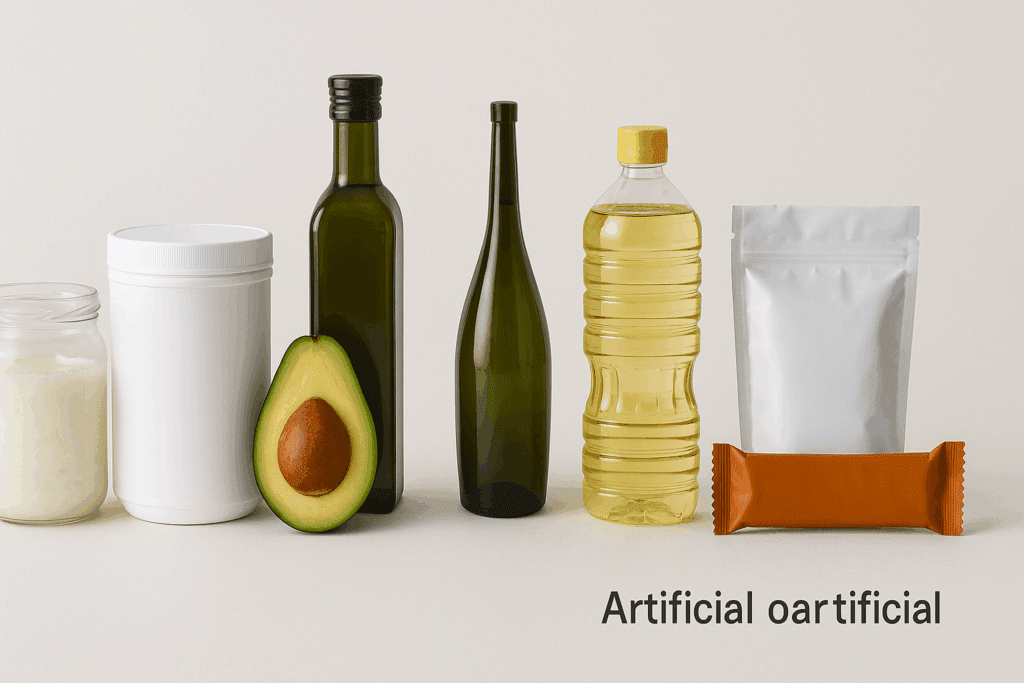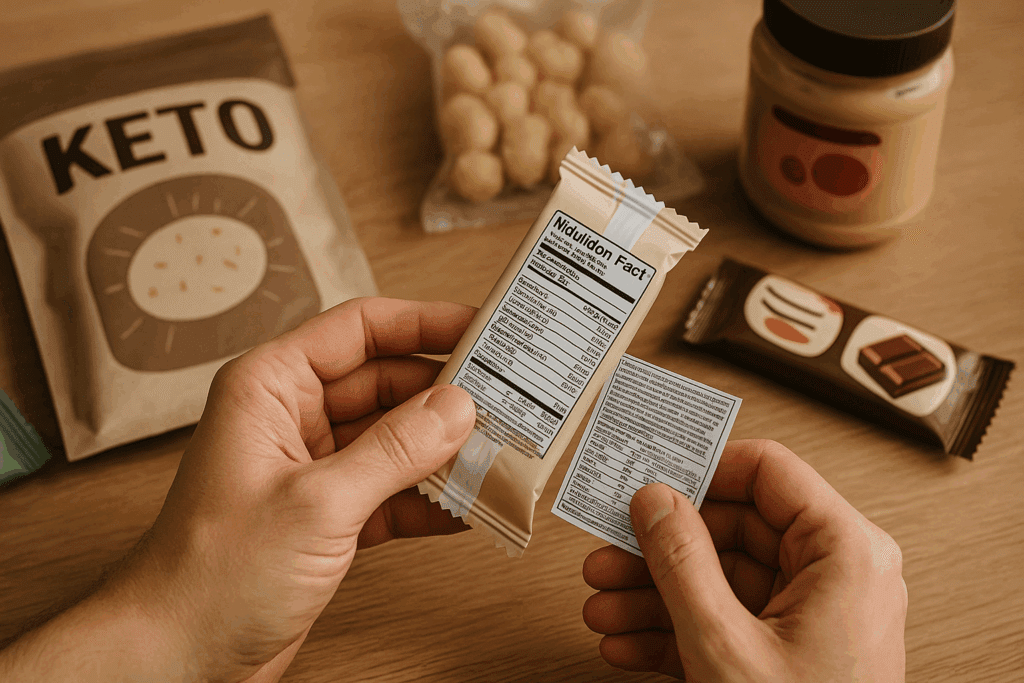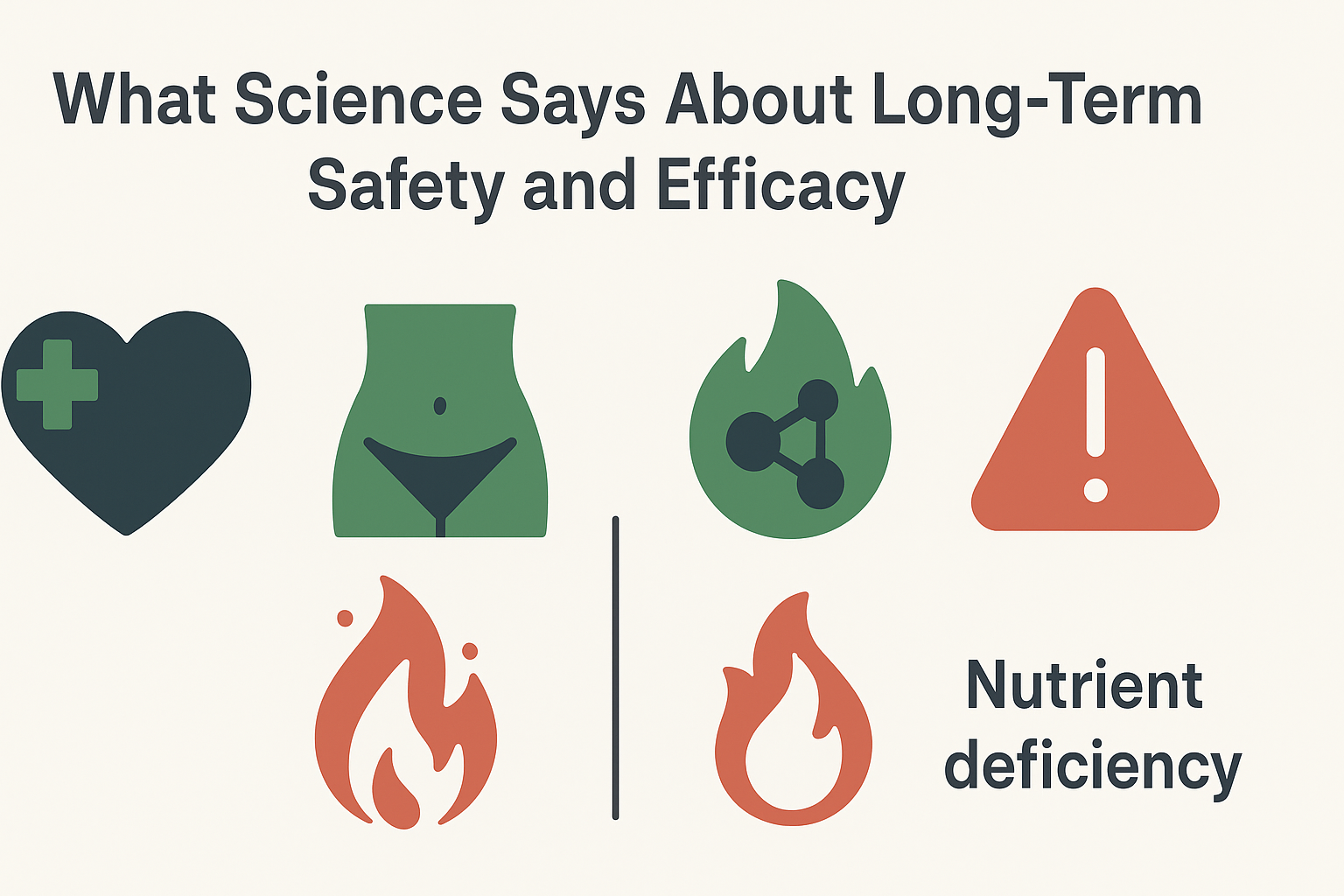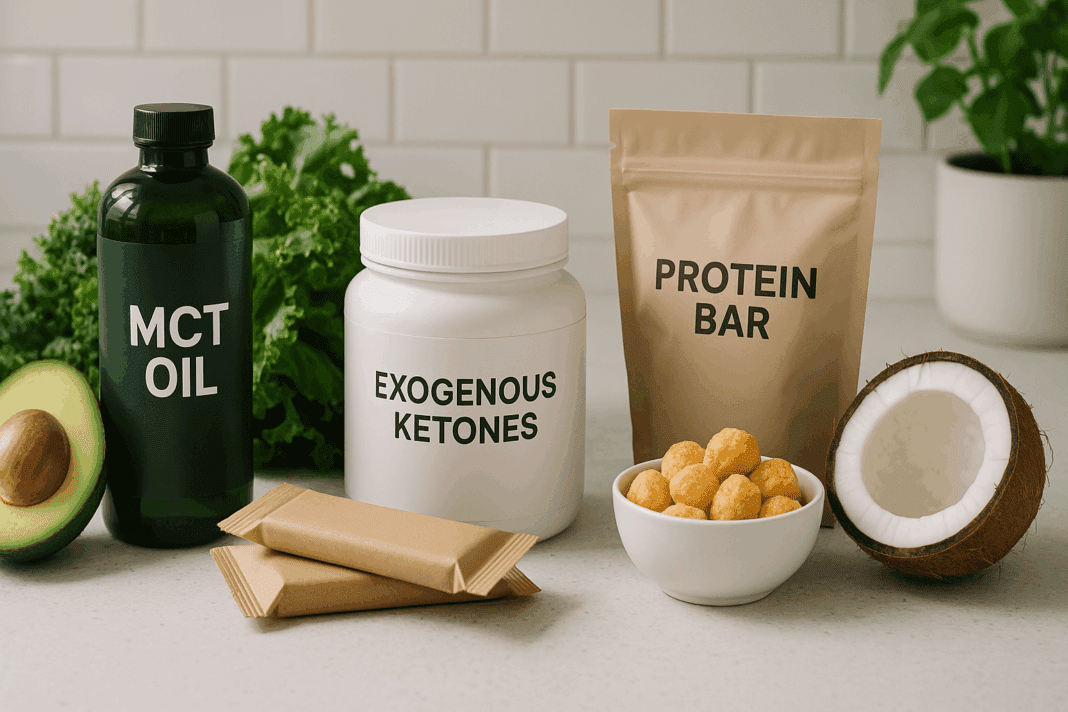Embarking on a ketogenic lifestyle can be transformative, especially for individuals seeking sustainable weight loss and improved metabolic health. But with the rapid rise in popularity of the keto diet has come an overwhelming array of keto diet products, each claiming to be the perfect solution for your weight loss journey. Understanding how to evaluate and select the best options requires more than just reading labels or following online trends. It involves making evidence-based decisions that align with your nutritional needs, metabolic profile, and long-term wellness goals. Backed by clinical insights and nutrition science, this guide offers an expert-led roadmap to navigating the world of ketogenic products, ensuring that you make choices rooted in trust, safety, and efficacy.
You may also like: Is the Keto Diet Safe or Dangerous? What Experts Say About the Risks, Benefits, and Basics of the Ketogenic Diet

Understanding the Ketogenic Diet and Its Nutritional Framework
To understand which keto diet products are truly beneficial, it helps first to grasp the underlying principles of the ketogenic diet. At its core, the ketogenic diet is a high-fat, moderate-protein, and very low-carbohydrate eating plan designed to shift the body from relying on glucose to using fat as its primary energy source. This metabolic state, known as ketosis, allows the liver to produce ketone bodies from fat, which then serve as a clean-burning energy source for the brain and muscles. Reaching and maintaining ketosis requires consistent macronutrient management and a conscious effort to avoid hidden sources of sugar and carbohydrates, which are surprisingly prevalent in many so-called “low-carb” or keto-friendly items.
Effective weight loss on a ketogenic diet depends not only on achieving ketosis but on maintaining nutritional balance, metabolic flexibility, and digestive health. This is where carefully selected keto diet products can play a pivotal role. From meal replacements to exogenous ketones and MCT oils, these products are designed to support the body through the transition into ketosis and sustain energy levels throughout the day. However, not all ketogenic products are created equal. The market is saturated with supplements and foods that may undermine your progress through artificial additives, poor-quality fats, or misleading labeling. Learning to spot these red flags and prioritize scientifically validated ingredients is essential to your long-term success.

Evaluating the Quality and Safety of Keto Diet Products
When evaluating keto diet products, it’s important to approach the process with the same scrutiny you would apply to any aspect of your health. Not all products labeled as “keto” meet the physiological standards required to support true nutritional ketosis. The keto label has, unfortunately, become a marketing buzzword, applied loosely to attract consumers without adequate regulation or consistency. As a result, many items on the shelf contain sugar alcohols, artificial sweeteners, or inflammatory seed oils that may trigger digestive upset, blood sugar spikes, or inflammation.
Instead, focus on keto diet products that use clean, whole-food-based ingredients and avoid artificial preservatives. Look for healthy fats like avocado oil, coconut oil, and grass-fed butter or ghee, which provide energy while also supporting cardiovascular health. Protein powders or bars should use high-quality sources such as grass-fed whey, collagen peptides, or plant-based proteins with minimal added fillers. Fiber is another important yet often overlooked element, especially as some keto products lack sufficient fiber content, which is crucial for maintaining gut health and avoiding constipation.
Safety also involves verifying third-party testing and certifications, especially for supplements such as exogenous ketones, electrolytes, or multivitamins designed for keto dieters. Products should be tested for contaminants, heavy metals, and potency to ensure they deliver what they promise. Rely on brands with transparent sourcing, clinical backing, and clear labeling that lists ingredients and nutritional content per serving. Reading beyond the front label to the ingredient list and nutrition facts panel is key to identifying truly ketogenic products that support safe and sustainable weight loss.

The Role of Exogenous Ketones and MCT Oils in Supporting Ketosis
Exogenous ketones and MCT (medium-chain triglyceride) oils are among the most popular ketogenic products used to accelerate and sustain ketosis. But understanding when and how to use them is critical to maximizing their benefits without relying on them as shortcuts. Exogenous ketones are synthetic ketone bodies, often in the form of beta-hydroxybutyrate (BHB), that can raise blood ketone levels rapidly. While this can provide a temporary boost in energy and mental clarity, especially during the early adaptation phase of the keto diet, they are not a replacement for nutritional ketosis derived from dietary changes.
MCT oils, on the other hand, are naturally derived fats that are quickly metabolized by the liver into ketones, making them a highly efficient energy source for those on a ketogenic diet. Unlike long-chain triglycerides found in many animal fats, MCTs do not require bile salts for digestion, which means they can offer almost immediate energy—particularly beneficial for athletes, those with digestive issues, or anyone experiencing fatigue during the carb-reduction phase. The best MCT oil products are derived from 100% coconut oil, are free from palm oil blends, and provide a balanced profile of C8 (caprylic acid) and C10 (capric acid) triglycerides, which are most efficiently converted into ketones.
However, both exogenous ketones and MCT oils should be integrated strategically. Overuse can lead to digestive discomfort, such as diarrhea or bloating, and may create a false sense of ketosis without encouraging the metabolic adaptations necessary for fat burning. These keto diet products work best when used to complement, not replace, a whole-food-based ketogenic eating pattern. They can help break a plateau, enhance workout performance, or provide mental clarity during periods of cognitive demand, but they should always be viewed as tools rather than foundational necessities.

Reading Labels and Avoiding Hidden Carbohydrates in Keto Products
A crucial skill in selecting effective ketogenic products is the ability to decode nutrition labels. Many products marketed as keto-friendly contain ingredients that are anything but supportive of ketosis. The most common culprits include maltitol, dextrose, tapioca syrup, and other hidden sugars that can elevate insulin levels and kick you out of ketosis. Sugar alcohols like erythritol and xylitol may be better tolerated by some, but even these can cause digestive issues in sensitive individuals and should be consumed in moderation.
Beyond sugars, pay attention to the total and net carbohydrate content. Some keto product manufacturers rely on subtracting fiber and sugar alcohols to calculate net carbs, but this doesn’t always reflect the actual metabolic impact of the food. For example, not all fibers are fermented or digested equally, and certain sugar alcohols have a glycemic response, meaning they can still affect blood sugar levels. Prioritize products with minimal ingredient lists, where you recognize and can pronounce every component. Real-food ingredients are almost always superior to synthetic ones, and transparency in labeling is a hallmark of trustworthy keto diet products.
Additionally, be mindful of serving sizes, which can often be misleading. A bar labeled as low-carb may contain 10 grams of net carbs per serving, but if the package includes two servings, you’re getting double the carbs—and possibly double the insulin response—if you consume the whole item. Understanding these nuances helps you avoid setbacks in your ketogenic journey and empowers you to make more informed choices.

Personalizing Keto Product Selection Based on Health Goals and Lifestyles
No two individuals will respond to the same ketogenic products in exactly the same way. Your age, gender, activity level, metabolic health, and specific goals—whether it’s fat loss, muscle gain, blood sugar regulation, or cognitive enhancement—will all influence which keto diet products are most effective for you. For example, someone managing type 2 diabetes may benefit more from high-fiber, low-glycemic meal replacements that stabilize blood sugar levels, while an athlete might prioritize MCT oils and collagen-based protein supplements that support recovery and energy demands.
Busy professionals may find value in convenient options like ready-to-drink keto shakes or prepackaged meals that maintain macros without compromising on ingredient quality. Meanwhile, individuals transitioning from a high-carb diet may benefit from electrolyte supplements that prevent the “keto flu,” a common set of symptoms that includes fatigue, headaches, and irritability due to rapid water and sodium loss. These considerations highlight why there is no one-size-fits-all solution when it comes to choosing the best ketogenic products.
Consider also how your lifestyle impacts your nutritional patterns. If you’re frequently traveling, shelf-stable products that require no refrigeration can be lifesavers. If you’re focused on longevity and anti-inflammatory benefits, then you might prioritize products high in omega-3s and polyphenols. Customizing your keto approach with products that align with your unique physiology and routine not only enhances your results but also makes the ketogenic lifestyle more sustainable and enjoyable.
The Importance of Whole Foods in a Keto-Based Diet
While keto diet products can enhance convenience and precision, they should never replace whole, nutrient-dense foods. The foundation of a healthy ketogenic diet remains rooted in real food: leafy greens, cruciferous vegetables, pasture-raised meats, wild-caught fish, avocados, nuts, seeds, and healthy oils. These foods offer bioavailable vitamins, minerals, antioxidants, and fiber that many processed products simply cannot replicate. Overreliance on packaged keto items can lead to micronutrient deficiencies, inflammation, and digestive imbalances over time.
Whole foods also provide the metabolic signaling necessary for long-term adaptation. The complex phytonutrients in vegetables, the collagen in bone broth, and the omega-3s in fatty fish all contribute to better hormonal balance, gut microbiome diversity, and cellular repair—benefits that extend beyond weight loss into holistic wellness. Incorporating keto products mindfully, as supplements to a robust whole-food framework, ensures that your diet remains both effective and nourishing.
Moreover, cooking at home allows for greater control over ingredients, portion sizes, and macronutrient ratios. It can also foster a deeper connection to the food you eat, helping you stay mindful and engaged in your wellness journey. Using ketogenic products as enhancers—not substitutes—for whole meals reinforces a more balanced, science-informed approach to health.

What Science Says About Long-Term Safety and Efficacy
The long-term success of any diet hinges not only on short-term weight loss but on its safety, sustainability, and adaptability to changing life circumstances. Scientific research on ketogenic diets continues to expand, with numerous studies supporting their benefits in managing obesity, insulin resistance, epilepsy, and neurological disorders. However, these benefits are most pronounced when the diet is implemented with high-quality, nutrient-dense foods and carefully selected keto products.
Research has shown that poorly designed ketogenic diets—especially those high in processed meats, trans fats, and artificial ingredients—may raise cardiovascular risks, despite inducing weight loss. Conversely, a well-formulated ketogenic diet, supported by clean keto products and rich in anti-inflammatory foods, can improve cholesterol ratios, reduce systemic inflammation, and enhance metabolic flexibility. Choosing high-quality ketogenic products, then, becomes more than a matter of preference—it is a fundamental component of evidence-based nutritional care.
Additionally, sustainability is a key concern. Many individuals fall off the keto bandwagon due to monotony, restrictive choices, or digestive challenges caused by low-fiber diets or overly processed keto foods. Using products that enhance palatability, variety, and ease without sacrificing nutritional integrity can make all the difference. For instance, high-fiber keto wraps, nut-based granolas, or shelf-stable bone broth can offer variety while supporting dietary compliance and enjoyment.
Frequently Asked Questions (FAQ): Choosing the Best Keto Diet Products
1. Can keto diet products support hormonal balance during weight loss?
Yes, certain keto diet products may help support hormonal balance, particularly during the early phases of ketosis when hormone fluctuations are common. For example, high-quality collagen peptides not only support joint and skin health but may also assist in stabilizing cortisol levels due to their glycine content. Products rich in healthy fats like omega-3-enriched MCT oil can aid in supporting reproductive hormone synthesis, especially in women who may be at risk of hormonal disruption from rapid fat loss. Additionally, electrolytes containing magnesium and potassium can positively influence adrenal function and reduce the stress response, which is often heightened in calorie-deficit states. Choosing the right ketogenic products for hormonal support involves understanding your endocrine profile and selecting formulations that provide micronutrients alongside macros.
2. Are there keto products specifically designed for mental performance?
Yes, the growing field of neuro-nutrition has led to the development of ketogenic products targeting brain health and cognitive enhancement. Some keto diet products are formulated with nootropic ingredients, such as L-theanine, citicoline, or lion’s mane mushroom, combined with exogenous ketones to optimize mental clarity and focus. These blends may benefit students, professionals, or individuals with neurodegenerative conditions by providing dual-action support for ketone metabolism and neurotransmitter synthesis. MCT-based coffee creamers are another keto product category that combines fuel and focus, making them a popular choice among biohackers and those practicing intermittent fasting. When selecting products for brain function, look for clinical research backing the ingredients and transparent dosing information.
3. How can I tell if a keto product is truly low in inflammatory ingredients?
To evaluate whether a keto product may promote or reduce inflammation, you must look beyond carbohydrate content and examine fat sources and additives. Opt for ketogenic products that use cold-pressed avocado oil, extra virgin olive oil, or sustainably sourced coconut oil as primary fats. Avoid items that rely heavily on omega-6-rich seed oils like soybean, sunflower, or canola, as these can contribute to systemic inflammation when consumed frequently. Inflammation can also be exacerbated by artificial sweeteners, preservatives, and processed emulsifiers, which are common in low-quality keto diet products. Choosing certified organic or third-party tested products can offer an added layer of confidence in their anti-inflammatory potential.
4. Are there ketogenic products that support gut health on a low-fiber diet?
Yes, many ketogenic products now include prebiotic fibers or fermented ingredients to help offset the low fiber intake commonly associated with ketogenic diets. Products that incorporate acacia fiber, inulin, or resistant starch from green banana flour can feed beneficial gut bacteria without knocking you out of ketosis. Some keto diet products are also formulated with digestive enzymes and spore-based probiotics to improve nutrient absorption and reduce bloating. These options can be especially useful for those experiencing GI distress or constipation after transitioning to low-carb living. To support gut health, look for ketogenic products with clearly labeled fiber types and clinical evidence supporting their microbiome benefits.
5. How can keto diet products help with maintaining muscle mass during fat loss?
Preserving lean muscle is a common challenge when pursuing fat loss, especially in low-carb contexts. Certain keto diet products are specifically designed to combat muscle catabolism by providing high bioavailability protein sources and leucine-rich amino acid profiles. Collagen protein fortified with vitamin C can promote muscle repair while supporting connective tissue health. Additionally, keto-friendly BCAA or EAA blends can be consumed before or after workouts to prevent muscle breakdown and promote recovery. Choosing ketogenic products with adequate protein-to-fat ratios can help you meet anabolic needs without exceeding carb thresholds, particularly important for athletes and older adults.
6. What emerging trends are shaping the future of keto product development?
The ketogenic product landscape is rapidly evolving, with several trends poised to shape the future of consumer choices. One growing trend is the integration of adaptogens such as ashwagandha and rhodiola into keto snacks and supplements to help manage stress while in ketosis. Another development is the use of precision nutrition technology to create personalized keto diet products based on genetic and microbiome data. Additionally, eco-conscious formulations—like plant-based ketogenic products with compostable packaging—are becoming more available for sustainability-focused consumers. The rise of hybrid products, such as keto bars that combine collagen, MCTs, probiotics, and nootropics, reflects the demand for multifunctional support. These innovations highlight how keto products are becoming increasingly tailored to meet diverse needs beyond just weight loss.
7. Are there risks associated with overusing certain keto diet products?
Yes, despite their benefits, excessive reliance on specific keto diet products can lead to nutritional imbalances or unintended side effects. For instance, overconsumption of exogenous ketones may suppress natural ketone production or cause digestive discomfort if used improperly. Similarly, relying heavily on keto meal replacements without varying your diet could result in micronutrient deficiencies due to a lack of whole foods. High intake of sugar alcohols or fiber additives in ketogenic products may also trigger gastrointestinal issues like bloating or diarrhea. It’s essential to use keto products as supportive tools rather than complete dietary replacements, ensuring they complement rather than dominate your nutrition plan. Regularly rotating your product choices and consulting with a qualified nutritionist can help mitigate these risks.
8. How do keto diet products differ in effectiveness between men and women?
Although keto diet products are often marketed as gender-neutral, biological sex can influence how the body responds to various ketogenic products. Women, especially those of reproductive age, may require more careful macronutrient cycling to avoid hormonal disruptions from extended ketosis. Keto products that support thyroid function, such as those containing selenium and iodine, may be particularly beneficial for women managing fatigue or hormonal imbalances. Men may benefit more from products that emphasize muscle preservation, such as creatine-infused keto protein powders or testosterone-supportive formulations. Ultimately, the effectiveness of a keto product depends on individual physiology, and personalized adjustments based on gender-specific needs can optimize outcomes.
9. Can keto products be used during intermittent fasting without breaking the fast?
Some keto diet products are formulated specifically to support intermittent fasting protocols by providing energy without significantly impacting insulin or glucose levels. MCT oil-based products, for example, are commonly used during fasting windows to enhance ketone production and curb hunger without disrupting autophagy. Certain keto beverages infused with electrolytes and no added calories can help maintain hydration and reduce symptoms of fasting fatigue. However, it’s important to distinguish between products that are truly fasting-compatible and those that include protein or sweeteners, which may initiate a metabolic response. For best results, use ketogenic products designed with fasting in mind and experiment with how your body responds during different phases of your fast.
10. What role do ethical sourcing and sustainability play in choosing keto diet products?
Sustainability is an increasingly important consideration when selecting keto diet products, particularly for environmentally conscious consumers. Ethical sourcing ensures that animal-based products, such as grass-fed collagen or pasture-raised eggs, are produced in humane and eco-friendly conditions. Similarly, plant-based ketogenic products made with regenerative farming practices or certified organic ingredients support long-term soil and ecosystem health. Packaging is another factor, with more brands transitioning to biodegradable or recyclable containers to reduce environmental impact. By choosing keto products from companies that prioritize sustainability, consumers can align their nutritional goals with broader wellness and ethical values.
Final Thoughts on Choosing Keto Diet Products for Lasting Wellness
Selecting the best keto diet products is both an art and a science—one that requires discernment, personalization, and a commitment to evidence-based wellness. As you navigate the ever-growing market of ketogenic products, keep in mind that not all keto-labeled items are created with your health in mind. The most effective keto product is one that complements a real-food diet, aligns with your health goals, and is backed by transparent sourcing, sound nutritional science, and clinical validation.
Above all, approach ketogenic products not as magic bullets but as strategic tools. When used wisely, they can support metabolic goals, enhance performance, and promote adherence to a lifestyle that prioritizes quality, balance, and long-term health. Lean on expert-backed advice, trust your body’s feedback, and stay rooted in whole-food nutrition as your foundation. In doing so, you’ll be well-positioned to enjoy the benefits of the ketogenic lifestyle—safely, effectively, and sustainably.
Whether you’re a seasoned keto enthusiast or just beginning your journey, making informed choices about keto diet products is one of the most empowering steps you can take toward lasting weight loss and metabolic resilience. Trust the science, respect your individuality, and invest in your health with intention. That’s the real power behind choosing ketogenic products the smart way.
Further Reading:
20 Foods to Eat on the Keto Diet
14 Best Keto Meal Delivery Kits
Keto Diet Food List: What to Eat and What to Limit If You Go Keto


